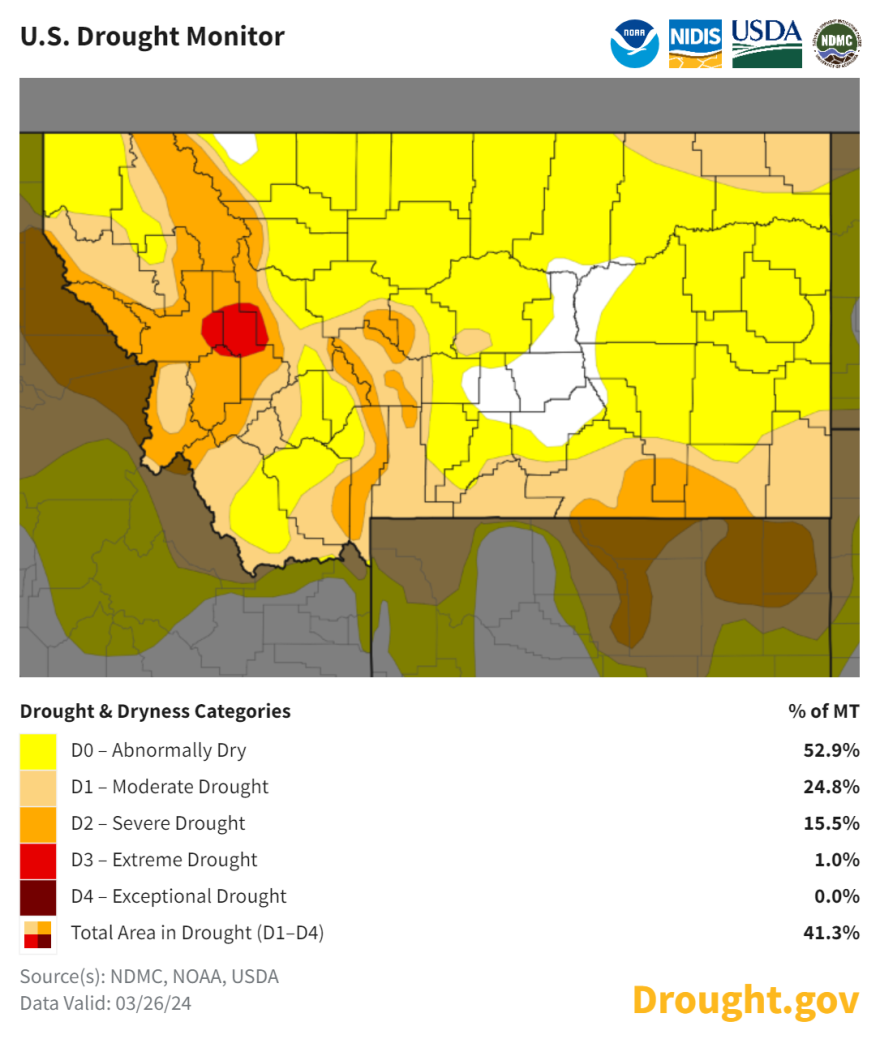Montana will need an extremely wet spring to avoid widespread drought once summer arrives. Scientists are skeptical that the needed moisture will arrive.
Almost 95% percent of Montana is abnormally dry this winter, according to data published Thursday by the National Drought Information System.
Nowhere is the problem more acute than the Upper Clark Fork Basin east of Missoula, where snowpack and precipitation are near their lowest levels since records began in 1979.
And the situation is unlikely to improve before summer, according to forecasts from scientists with the Montana Climate Office. The office recently shared projections suggesting many parts of the state won’t recover adequate moisture.
The scientists warn that could lead to water shortages affecting agriculture, fisheries, and recreation around the state.
-
For nearly three decades a federally funded project has worked to deliver clean water to thousands in northeastern Montana. A proposed policy would extend that work.
-
Hydrologists are calling Montana's first snowpack report of the year “a tale of two snowpacks.” There's plenty of snowpack in the high mountain ranges, but lower elevation areas are below average.
-
A Montana district court ruled in favor of an environmental group that challenged the state's approval of new septic systems in the Gallatin Valley. The group argued that the state failed to assess cumulative impacts from the septic systems and how they may harm the river.
-
Western Montana’s drought conditions have improved significantly since late summer. North-central Montana’s drought status is changing too, but for the worse.
-
The town of Belt has worked with the state for decades to tackle issues left by the Anaconda Coal Mine. A new multimillion-dollar water treatment facility will finally fix that. The plant will clean the acid drainage before discharging it back into the creek.
-
Bull Mountain Land Alliance and Northern Plains Resource Council accuse the state of violating the Constitution by changing coal mine permits without public input. In their lawsuit, they point to more than 300 changes made to the permit for the Bull Mountains Mine in south central Montana since the early 2000s.








